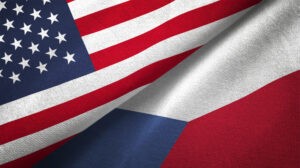Kosovo and Serbia – An explosive Situation
For the EU and NATO a further escalation of the conflict between Serbia and Kosovo would be a huge problem. That’s why Moscow could have an agenda. [1]
Even before Serbia put its army on alert, the situation in Kosovo had been explosive [2]. In the Northern part of Kosovo, where a majority of the population are Serbs, conflicts have been growing for weeks, so that a violent confrontation between Serbs and Kosovars seems possible. Both parties can be blamed for the escalation. Both of them have made decisions that can be understood as a provocation by the other party.
However, it can be seen that especially Serbians president Aleksandar Vucic systematically fuels [3] the conflict. It seems typical for him to play a risky power game. But this has created a situation that can easily spiral out of control.
There is one power to which a resurgence of violence in the Balkans would bring no cost and great political benefit: Russia. A conflagration [4] in this area, which is entirely surrounded by EU and NATO countries, would cause considerable difficulties for the West. The conflict in northern Kosovo is undoubtedly driven by local dynamics.
But the suspicion is that Moscow is doing a bit of kindling [5] there. The West must now quickly do everything it can to calm the situation. Opportunities to exert influence it has. After all, Serbia is economically much more closely intertwined with the EU than with Russia.
SOURCE: Veser, Reinhard. “Kosovo Und Serbien: Russlands Interesse an Eskalation.” FAZ.NET, 28 Dec. 2022, www.faz.net/aktuell/politik/ausland/kosovo-und-serbien-russlands-interesse-an-eskalation-18561925.html.
[1] This summary of the situation presents the conflict between Serbia and Kosovo as a proxy war between EU/NATO and Russia, while completely dismissing the consequences for the region itself.
[2] explosive, [3] fuel, [4] conflagration], [5] kindling – all these words are out of the semantic field of fire, creating the image of a burning in the reader’s mind that makes them think of war and suggest that an armed conflict in the Balkans is on the verge of breaking out.
ANALYSIS:
The author of the article makes excessive use of words out of the semantic field of fire and explosion that create the image of war in the minds of readers. This way the author seeks to „profit“ from the news coverage of the war in Ukraine. This presentation of the situation makes it seem like a war in the Balkans is imminent even though the local situation is very different from the situation in Ukraine in February 2022 with many Russian troops stationed on the borders of the country, ready to attack. No such preparations by a foreign army can be seen in Kosovo.
Another problem is that the conflicts between Kosovars and Serbs is presented as a proxy war between NATO and Russia as an extension to the ongoing war in Ukraine. This is especially clear in the headline. Thereby the local agency of the two Balkan countries is grossly disregarded.
Furthermore, it can be said that this direct and indirect reference to the war in Ukraine is totally inappropriate considering the reality of the war in Ukraine and the very real suffering of Ukrainian population. The inhabitants of Northern Kosovo are very far from having bombs falling onto their houses and no masses of them are fleeing the country. It can be seen that the article is trying to scare the reader by making another war in Europe of the dimension of the Russia-Ukraine conflict seem likely when the conflict in Kosovo should be seen as a local conflict that has nothing to do with the war in Ukraine.
about the source:
The FAZ (Frankfurter Allgemeine Rundschau) is a national daily newspaper that belongs to the leading media in Germany. It is published by Frankfurter Allgemeine Zeitung GmbH, 93.7 % of which is owned by the Fazit Foundation (non-profit GmbH). The other shares are held by the publishers, who also determine the line of the newspaper. Its general orientation is considered to be conservative. It is known for its large feuilleton section. The FAZ plays an opinion-forming role in many socio-political discussions and/or frequently triggered them.


